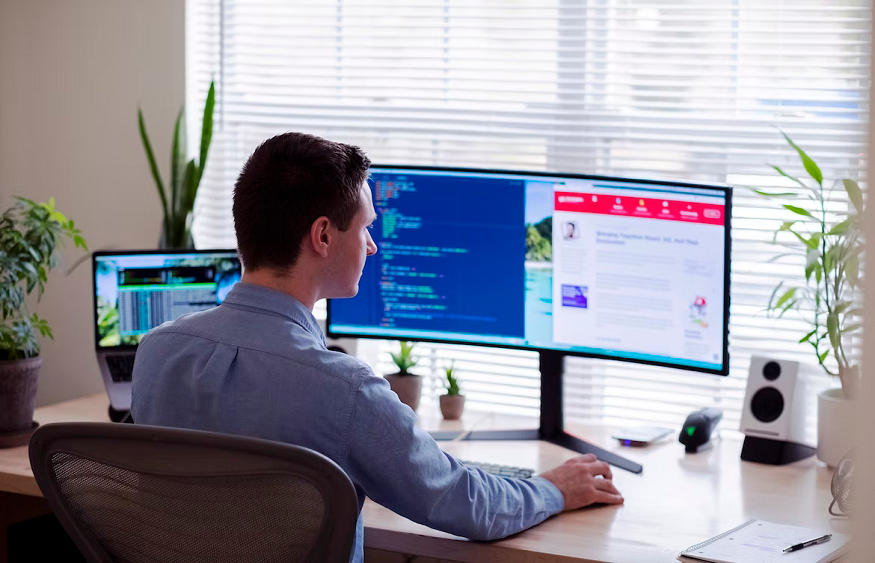Computer monitoring in the workplace has become increasingly common as technology plays an ever-growing role in our professional lives. We all know what is computer monitoring. There are several compelling reasons why employers choose to monitor computers in their workplaces. These reasons range from ensuring productivity to maintaining security, and they have substantial implications for both employers and employees. Let’s explore the key motivations behind monitoring computers at the workplace.
Why Should You Monitor Computers at the Workplace?
1. Productivity Enhancement
One of the primary reasons for monitoring computers in the workplace is to enhance productivity. Employers invest in computer monitoring software to ensure that employees are using their work hours effectively. By tracking computer usage, employers can identify time-wasting activities and address them promptly. This, in turn, can lead to a more efficient and productive workforce. Check out the article from time doctor. Source link.
2. Time Management
Time is a valuable resource in any workplace. Monitoring computer usage can help employers identify patterns of time mismanagement. For example, it can reveal if employees are spending excessive time on non-work-related websites or applications. By addressing these issues, employers can encourage better time management and ensure that work-related tasks are prioritized. For this Work Examiner can be a great tool. To know more-click
3. Security
Maintaining the security of company data and assets is a paramount concern for employers. Computer monitoring can help detect and prevent security breaches and unauthorized access. It is especially crucial in industries where sensitive or confidential information is handled, such as healthcare, finance, and technology.
4. Compliance and Policy Adherence
Companies often have policies and regulations in place to govern acceptable computer and internet usage in the workplace. Computer monitoring allows employers to ensure that employees are adhering to these policies and compliance requirements. This is vital for maintaining a safe and ethical working environment.
5. Data Loss Prevention
Data loss, whether intentional or accidental, can have severe consequences for a company. Monitoring can help prevent data leaks by alerting employers to suspicious or unauthorized data transfers. It can also help identify employees who may be mishandling sensitive information.
6. Employee Safety
In certain industries, such as manufacturing or construction, computer monitoring can be an essential component of employee safety. It helps ensure that employees are following safety protocols and not engaging in risky or hazardous behavior, which can lead to accidents.
7. Legal Requirements
In some cases, employers are legally obligated to monitor computer usage. For instance, in healthcare, organizations must monitor and secure electronic health records to comply with Health Insurance Portability and Accountability Act (HIPAA) regulations. Similarly, financial institutions must monitor for fraudulent or illegal activities to comply with financial regulations.
8. Employee Accountability
Computer monitoring can help establish a sense of accountability among employees. Knowing that their computer usage is monitored can encourage employees to take their work responsibilities more seriously. This sense of accountability can lead to improved job performance.
Final Words
It’s essential to strike a balance between monitoring and respecting employees’ privacy and autonomy. Employers should be transparent about their monitoring practices, communicate the reasons behind monitoring, and implement policies that are fair, ethical, and compliant with legal requirements. By doing so, employers can achieve their goals while maintaining a positive and trusting relationship with their employees. Ultimately, computer monitoring should be a tool used to support and improve the work environment, not a means of infringing on employees’ rights or privacy.

